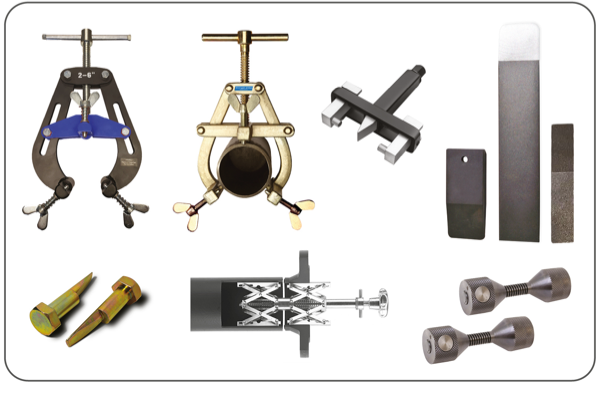If you're aiming to break into solar trade careers in Washington, NC, by 2025, starting with an apprenticeship offers a direct path, typically involving 35 hours of solar PV training and obtaining a NABCEP Entry-Level PV Exam certification, which could lead to roles with salaries around $46,000 annually amid North Carolina's 5.9% growth in the sector, supporting over 110,000 clean energy jobs statewide. This route aligns with local requirements like a valid electrical license in Washington and requires hands-on experience, such as installing at least two solar PV systems, while the broader U.S. solar industry is projected to add more jobs by 2025. Use Gild to explore nearby opportunities and job listings that could fast-track your entry into this growing field.
Understand the Role of a Solar Technician

As a solar technician in Washington, NC, you'll be responsible for installing, maintaining, and repairing solar PV systems in residential, commercial, and utility-scale settings, ensuring they operate efficiently to harness renewable energy. This role often involves inspecting electrical connections, troubleshooting performance issues, and adhering to safety standards like the National Electrical Code (NEC), making it ideal for those with a knack for technical work and sustainability. With Washington's solar farms, such as the Washington White Post Solar Farm, contributing to local job markets, technicians play a vital role in advancing clean energy initiatives and supporting the community's transition to renewables.
Do You Need a License or Certification for Solar Trade Jobs in Washington, NC?
Yes! In Washington, NC, an electrical license is essential for solar work, while North Carolina requires 35 hours of solar PV training and passing the NABCEP Entry-Level PV Exam for compliance. These credentials ensure you can legally perform installations, adhering to state standards and promoting safe practices in the industry. For accurate updates, check RSI's state requirements guide to navigate certifications like NABCEP, and use Gild to find roles that match your qualifications.
Training Programs and Educational Opportunities for Solar Professionals

Enrolling in a training program is a key step to building expertise as a solar technician. In North Carolina, options include the NC Clean Energy Technology Center for hands-on courses in solar design, or the Solar Energy International (SEI) online workshops, which offer flexible access to topics like PV system maintenance. Programs such as the NC Clean Energy Youth Apprenticeship at nearby Halifax Community College provide practical training, typically lasting several months to prepare you for certifications. To get started, search for open programs on ZipRecruiter and consider Gild for apprenticeship listings that can accelerate your career path.
Steps to Secure a Solar Trade Position in Washington, NC, by 2025

1. Meet the Basic Requirements
To begin, you must be at least 18 years old, hold a high school diploma or GED, and have basic knowledge of electrical systems. Focus on gaining foundational skills through community resources or introductory online courses, which will make you eligible for apprenticeships in Washington, NC.
2. Complete Required Training and Certifications
Pursue 35 hours of solar PV training and pass the NABCEP exam, along with gaining hands-on experience by installing at least two systems. This step often involves programs from local colleges or online platforms, ensuring you're prepared for the technical demands of the job.
3. Gain Practical Experience Through Apprenticeships
Apprenticeships blend on-the-job training with classroom learning, typically lasting 1-2 years, under the guidance of experienced professionals. Use sites like Indeed to find opportunities and Gild to connect with programs that offer real-world experience in Washington, NC.
4. Apply for Jobs and Network in the Industry
Once certified, search for 20–23 solar job listings on platforms like ZipRecruiter or Indeed, and network with local solar companies. Emphasize your training and any completed installations in your applications to stand out in this competitive field.
5. Stay Updated on Regulations and Opportunities
By 2025, keep abreast of changes like North Carolina's decommissioning requirements to maintain compliance, which could open new roles in maintenance. Regularly check IREC for industry trends and use Gild to track evolving job prospects.
Timeline and Financial Investment for Entering Solar Trades
Entering solar trade careers usually takes 1-5 years, depending on your path: apprenticeships might span 1-2 years with additional time for certification exams, while full programs could extend to 5 years for comprehensive experience. Financially, expect costs around $500–$2,000 for training and exams, but federal incentives like those from the Inflation Reduction Act may offset expenses through grants or tax credits.
| Aspect |
Estimated Timeframe |
Estimated Cost |
| Basic Training |
1-3 months |
$500–$1,000 |
| Apprenticeship |
1-2 years |
Minimal (paid roles) |
| Certification Exam |
1-3 months prep |
$200–$500 |
| Full Career Entry |
Up to 5 years |
$1,000–$2,000 total |
Your Next Steps in Solar Careers
As you pursue solar technician jobs in Washington, NC, by 2025, leverage the state's robust growth in clean energy to build a rewarding career, with salaries starting at $46,000 and opportunities expanding through projects like local solar farms. Keep networking and checking Gild for the latest listings, ensuring you're ready to contribute to sustainable energy advancements.
Sources

